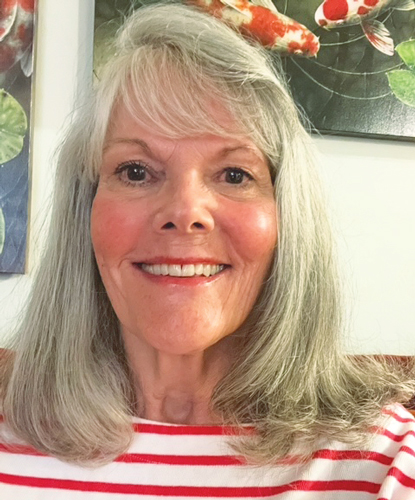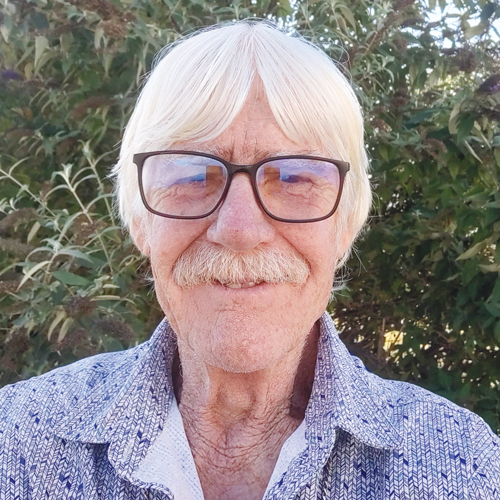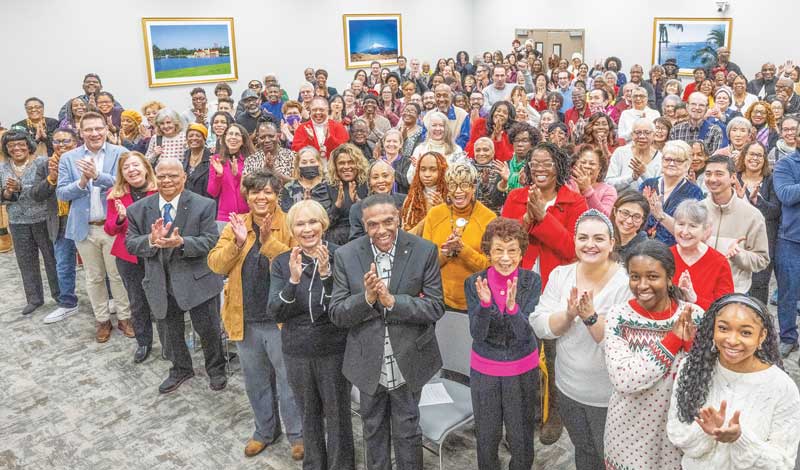In the mid-1970s, as the Watergate scandal and the Vietnam War dominated the news, Ikeda Sensei delivered his first overseas university lecture, “The Enduring Self,” on April 1, 1974, at UCLA. Speaking to 600 students, he introduced Buddhist principles largely unfamiliar to Western society and urged a shift from a civilization focused on the “lesser self” to one grounded in the “greater self.”
He went on to present six more lectures at universities in the U.S., including two at Harvard University—“The Age of Soft Power” in September 1991 and “Mahayana Buddhism and the Twenty-First-Century Civilization” in September 1993. He also spoke at Columbia University in June 1996, where he outlined the principles of global citizenship.
His vision for value-creating education led to the establishment of Soka University of America on May 3, 2001. This nondenominational, four-year liberal arts institution aims to foster a steady stream of global citizens committed to living contributive lives.
The Enduring Self (UCLA, April 1974)
“Buddhism teaches that all things will pass and that death must be faced with open eyes. Even so, the Buddha was not a prophet of resignation but a man who had attained full understanding of the Law of impermanence. He taught the need to face death and change without fear, because he knew that the immutable Law is the source of life and of value. None of us can escape death, but Buddhism leads us to see that behind death is the eternal, unchanging, greater life that is the Law. Secure in the absolute faith that this is the truth, we can face both our own demise and the impermanence of all worldly things with courage.”[1]
Buddhist principles of peace
Ikeda Sensei explained the concept of the “lesser self” as blinded by temporary circumstance and tortured by inordinate desires, versus the “greater self,” which recognizes the universal principle behind all things, enabling us to rise above the transience of the phenomena of the world.
The Age of ‘Soft Power’ (Harvard, September 1991)
“I propose that self-motivation is what will open the way to the era of soft power. While systems depending on hard power have succeeded by using established tools of coercion to move people toward certain goals, the success of soft power is based on volition. It is an internally generated energy of will created through consensus and understanding among people. The processes of soft power unleash the inner energies of the individual. Rooted in the spirituality and religious nature of human beings, this kind of energy has traditionally been considered in philosophical themes. But without the support of a philosophical foundation to strengthen and mobilize the spiritual resources of the individual, the use of soft power would become nothing more than ‘fascism with a smile.’ In such a society, information and knowledge would be abundant but subject to manipulation by those in power. A citizenry without wisdom would fall easy prey to authority with self-serving goals. For these reasons, the burden of sustaining and accelerating the trend toward soft power lies with philosophy.”[2]
Buddhist principles of peace
Ikeda Sensei touched on dependent origination as one of the most important Buddhist concepts, regarding life and its environment as two integral parts of the same entity. This deeper view of interrelatedness, he said, is uniquely dynamic, holistic and generated from within.
Radicalism Reconsidered (Claremont McKenna, January 1993)
“Just as radicalism is fated by its nature to resort to violence and terror, the most potent weapon in the arsenal of the gradualist is dialogue. In Socrates, we see the steadfast commitment to dialogue, to verbal combat from which there is no retreat, and an intensity that is, in some literal sense, ‘death defying.’ Such dialogue can only be sustained by resources of spiritual energy and strength far greater and deeper than will be found among those who so quickly turn to violence.”[3]
Buddhist principles of peace
Ikeda Sensei touched on the Ten Worlds, and how Buddhism offers a way of life centered on the highest states of bodhisattva and Buddhahood: “I am confident that Buddhism can deeply affect the formation of character that is the key to the restoration of human wholeness.”[4]
Peace and Human Security (East-West Center, January 1995)
“Our task is to establish a firm inner world, a robust sense of self that will not be swayed or shaken by the most trying circumstances or pressing adversity. Only when our efforts to reform society have as their point of departure the reformation of the inner life—human revolution—will they lead us with certainty to a world of lasting peace and true human security.”[5]
Buddhist principles of peace
Rooted in the concept of human revolution, Ikeda Sensei discussed how Buddhist wisdom could shed light on a transformation in the 21st century from knowledge to wisdom, from uniformity to diversity and from national to human sovereignty.
Peace Starts From Within

by Terry Mitchell
Long Beach, Calif.
I grew up in an unhappy family in Phoenix, Arizona. When I was in high school, my father suffered from alcoholism. We also had a lot of financial difficulties, and my parents were constantly arguing. I did everything I could to get out of the house, because I wasn’t happy being there. I left home for Hollywood as soon as I turned 18!
I was invited to my first district meeting in April of 1967. Seeing the unique differences among members practicing Buddhism made me interested in figuring out why the SGI was full of diversity. But what made me decide to begin practicing Buddhism was when the members said I could chant for anything I wanted and make the impossible possible. All I wanted was a happy family, and this was the most impossible desire that I could chant for. I joined that night!
During this time, so many heartbreaking things were going on in the world: the Vietnam War, and the assassinations of John F. Kennedy, Martin Luther King Jr. and Robert F. Kennedy. But Buddhism teaches that peace in the world starts with human revolution within ourself, our family, our work and our community. I realized I was responsible for my family becoming happy. I made a determination to stop blaming my parents for my unhappiness and to do my human revolution.
Early on in my practice, I met Ikeda Sensei in Japan in 1968, when I performed in a Fife and Drum Corps recital. Sensei treated us as if we were his own children. I was in awe of his expansive heart, his ability to connect with so many young people and his deep appreciation for the pioneers. He taught us through his example how to care for our families. This inspired me to wholeheartedly care for others like Sensei.
After marrying my husband and having two children, my oldest daughter told me, “Mom, the reason I started chanting is because I watched you and dad go through the most difficult times. You both turned them around every single time. That’s why I chant—through seeing your example.” That was the moment I realized my original prayer had fundamentally transformed my family karma.
Even though I’ve changed a lot, as I continue to deepen my Buddhist practice, I’ve also deepened my relationships with my family. There is no doubt I am creating a harmonious family now and for future generations.
The Person Right in Front of Me

by Tim Deiotte
Oak Harbor, Wash.
Ever since I was a kid, I despised war and injustice. So, when I came of age, I decided to do something about it. In 1969, I ventured to San Francisco to join the anti-war and civil rights movements there.
During a demonstration, a guy came up to me and asked, “You wanna go to a Buddhist meeting?” I told him, “Yes.”
Attending that meeting was my first encounter with the SGI and its movement for peace. It was also the first time I chanted Nam-myoho-renge-kyo.
A few months later, I was in the U.S. Army and soon found myself overseas in the middle of the Vietnam War—a situation that was the direct opposite of what I believed in.
Mystically, amid that intense environment, I ran into a fellow soldier named Dick Powell who said he chanted Nam-myoho-renge-kyo. To his surprise, I told him I also knew about the practice and was chanting every day.
Among other things, Dick gifted me a copy of the novel The Human Revolution, volume 1. I was on ambush duty in the middle of a rice field in Vietnam when I took it out for the first time, instantly moved by the opening lines:
Nothing is more barbarous than war. Nothing is more cruel. And yet, the war dragged on.
Nothing is more pitiful than a nation being swept along by fools. (The Human Revolution, p. 3)
I thought to myself that I wished to instill in my heart the spirit of the person who wrote this.
After completing my tour of duty, I returned to my hometown of Oak Harbor, Washington. While I had been away, a local SGI organization had cropped up there, led by a few Japanese women who had moved to the states. That’s when I really discovered and realized the beauty of the SGI’s movement for peace; that’s when I joined the organization and received the Gohonzon; and that’s when I chose Ikeda Sensei as my mentor.
It’s been 56 years since I first started chanting, and I still practice in Oak Harbor with many sincere, caring members—my comrades in faith fighting for peace and justice. While I have overcome many personal difficulties with this practice, at the present time, I really worry about the state of our country and its culture of division and conflict among people.
But that’s what so fantastic about our Buddhist practice and the SGI: We believe that every human being deserves dignity and respect just by being alive, and we can show the person in front of us how it works.
So, while I find the times troubling, just as Sensei encourages, I can help the person right in front me become happy. I think that’s Sensei’s spirit and our continuing mission.
October 2, 2025 World Tribune, pp. 8–9
You are reading {{ meterCount }} of {{ meterMax }} free premium articles

